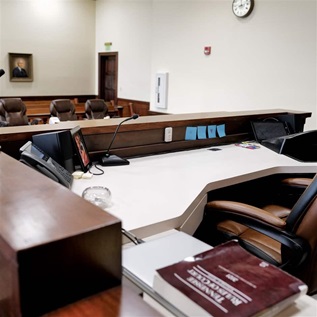Dance Advance Awards $901,000 in Grants to 22 Artists and Organizations
Dance Advance today announced $901,000 in grants to 22 artists, companies, and organizations for the 2008-2009 season. From a total of 66 applicants requesting project support from Dance Advance, two grants went to first-time grantees and one to a first-time applicant. Dance Advance is an artistic initiative of the Philadelphia Center for Arts and Heritage, funded by The Pew Charitable Trusts and administered by The University of the Arts.
This year's Dance Advance awards range in size from $10,000 to $80,000. Four grants were awarded to individuals; eleven to dance companies; seven to presenters; and one to a project involving four collaborating organizations. The awards support all aspects of the dance discipline: critical scholarship, artistic research and development, rehearsal and creation, and production and presentation of new, acquired, or reconstructed choreographic works. A full list of award recipients is attached.
“Philadelphia's dance community is generating work of greater artistry than ever before,” said Marian Godfrey, managing director of Culture and Civic Initiatives at The Pew Charitable Trusts. “We are proud to support this unusually diverse array of projects which will bring exciting dance to our region's audiences.”
“The range of work represented in the applicant pool speaks to the continuing vitality of our region's dance culture,” remarked Bill Bissell, director of Dance Advance. “This year The Pew Charitable Trusts increased the amount of project funds we were able to award, enabling us to expand our efforts to more fully meet the financial demands that individual artists and small to mid-size companies face in following their artistic interests creating adventurous dance programming.”
Each year, Dance Advance convenes a discipline-specific Peer Review Panel to select projects of outstanding merit. Proposals are evaluated by the panel according to criteria of artistic excellence, project excellence, and project impact. Grants are awarded in all genres of dance without regard to an applicant's financial need or prior funding history; and applicants must reside in Philadelphia, Bucks, Chester, Delaware, or Montgomery counties of Southeastern Pennsylvania.
The Peer Review Panel consisted of seven nationally recognized dance professionals: Jeffery Bullock, associate professor of dance at Hollins University and director of the American Dance Festival's Young Dancers School, and former dancer with Hubbard Street Dance Company and Pacific Northwest Ballet; Jennifer Calienes, director of the Maggie Allesee National Center for Choreography in Tallahassee, Florida, and former director of the National Dance Project; Dawn Gibson-Brehon, executive director of Ronald K. Brown/Evidence, Brooklyn, NY, and former director, World Theater, California State University, Monterey, CA; Wayne Hazzard, executive director of Dancers' Group in San Francisco, CA; Susan Warden, independent choreographer, Lawrence, KS; Lan-Lan Wang, choreographer, Professor, Department of Dance, Connecticut College, New London, CT; Amy Ginsburg, a dance artist and educator, served as the nonvoting panel chair.
Panelists also used reports from several expert consultants who reviewed potential applicants throughout the year: Simon Dove, Chair, Department of Dance, Arizona State University and former director of Springdance festival, Utrecht, Netherlands; Brent Edwards, Professor of English, Columbia University; Rita Felciano, dance writer and critic, San Francisco; Ursula Payne, independent choreographer and associate professor in dance, Slippery Rock University; Nicole Plett, executive officer, Institute for Women & Art, Rutgers University, New Brunswick, NJ; Gus Solomons, Jr., choreographer and co-artistic director, Paradigm, New York City; Andrea E. Woods, artistic director of SOULOWORKS/Andrea E. Woods; Elizabeth Zimmer, Dance and theater critic at Metro NY, and freelance arts writer and teacher.
Since its inception in 1993, Dance Advance and its precursor, the Philadelphia Repertory Dance Initiative, have funded a total of 330 dance-specific projects. These awards represent a value of $7,679,250 invested in the region's dance communities.
The Pew Charitable Trusts is driven by the power of knowledge to solve today's most challenging problems. Pew applies a rigorous, analytical approach to improve public policy, inform the public and stimulate civic life.
Opened in November 2005, the Philadelphia Center for Arts & Heritage (PCAH) houses seven existing initiatives of The Pew Charitable Trusts. PCAH is the home of Dance Advance, Heritage Philadelphia Program, Pew Fellowships in the Arts, Philadelphia Cultural Management Initiative, Philadelphia Exhibitions Initiative, Philadelphia Music Project, and Philadelphia Theatre Initiative. Together these programs assist cultural organizations and artists in the five-county Southeastern Pennsylvania region in developing high-quality public programs and effective management practices. For more information, visit www.pcah.us.











